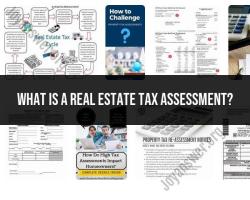How to evaluate buying a rental property?
Evaluating a rental property before purchase is crucial to ensure it aligns with your investment goals and has the potential to generate positive returns. Here's a comprehensive guide on factors to consider when evaluating a rental property:
Location:
- Proximity to amenities, schools, public transportation, and job centers can impact the property's attractiveness to tenants.
- Research neighborhood trends, crime rates, and future development plans.
Market Conditions:
- Analyze the local real estate market, considering trends in property values, rental rates, and vacancy rates.
- Look for areas with potential for future growth and economic stability.
Property Type:
- Consider the type of property (single-family home, multi-family unit, condo, etc.) based on your investment goals and target tenant demographic.
Cash Flow Analysis:
- Calculate potential cash flow by subtracting estimated operating expenses (property management, insurance, property taxes, maintenance) from expected rental income.
- Ensure the property generates positive cash flow.
Financing Options:
- Explore financing options, comparing interest rates, loan terms, and down payment requirements.
- Evaluate the impact of financing on your overall return on investment.
Property Condition:
- Conduct a thorough inspection to identify any necessary repairs or renovations.
- Consider the cost of improvements and factor them into your budget.
Property Management:
- Assess the feasibility of managing the property yourself or hiring a property management company.
- Consider the associated costs and whether it aligns with your investment strategy.
Historical Performance:
- Research the property's historical performance, including rental income, expenses, and any past issues.
- Request historical financial statements and rental history from the current owner.
Tenant Demand:
- Evaluate the demand for rental properties in the area.
- Consider vacancy rates, rental trends, and the overall desirability of the location for potential tenants.
Legal and Regulatory Compliance:
- Understand local landlord-tenant laws, zoning regulations, and other legal requirements.
- Ensure the property complies with all applicable regulations.
Future Development:
- Consider any planned developments or infrastructure projects in the area that may impact property values or rental demand.
Cap Rate and ROI:
- Calculate the property's capitalization rate (cap rate) and return on investment (ROI) to assess its profitability.
- Cap rate is calculated by dividing the property's net operating income (NOI) by its current market value.
Tax Implications:
- Consult with a tax professional to understand the tax implications of the investment, including potential deductions and any changes in tax laws.
Exit Strategy:
- Have a clear exit strategy in mind, whether it's long-term rental income, property appreciation, or resale.
Due Diligence:
- Conduct thorough due diligence, including title searches, environmental assessments, and any other relevant investigations.
Remember that every property is unique, and your evaluation should be tailored to your specific investment goals and risk tolerance. Seeking advice from real estate professionals, financial advisors, and legal experts can provide valuable insights and help you make informed decisions.
Key factors to consider when evaluating the purchase of a rental property
When evaluating the purchase of a rental property, there are a number of key factors to consider, including:
- Location: Location is one of the most important factors in determining the profitability of a rental property. Properties in desirable locations with high demand for rental housing will typically command higher rents and be easier to rent.
- Property type: The type of property can also affect profitability. Single-family homes typically generate higher rents than apartments, but they also require more maintenance and repairs.
- Property condition: The condition of the property can also impact profitability. Well-maintained properties will attract higher-quality tenants and be easier to rent.
- Rent price: The rent price is obviously a key factor in profitability. Rent should be set at a level that is competitive with similar properties in the area, but also high enough to generate a profit.
- Tenant screening: Tenant screening is essential to ensure that you are renting to responsible tenants who will pay their rent on time and take care of the property.
- Property management: If you do not have the time or expertise to manage your rental property yourself, you can hire a property management company. Property management companies can help you to find tenants, collect rent, and handle maintenance and repairs.
How does location, market trends, and property condition affect the decision to buy a rental property?
Location
Location is one of the most important factors in determining the profitability of a rental property. Properties in desirable locations with high demand for rental housing will typically command higher rents and be easier to rent.
When considering location, you should look for properties in areas with the following characteristics:
- High population density: This will ensure that there is a large pool of potential tenants.
- Abundant employment opportunities: This will help to ensure that tenants can afford to pay rent.
- Affordable housing: This will help to ensure that there is demand for rental housing.
- Good schools: This will attract families with children.
- Proximity to amenities: This will make the property more attractive to tenants.
Market trends
It is also important to consider market trends when evaluating the purchase of a rental property. If the rental market in your area is strong, you will be more likely to find tenants and generate a profit.
Property condition
The condition of the property is also an important factor to consider. Well-maintained properties will attract higher-quality tenants and be easier to rent.
When evaluating property condition, you should look for properties that meet the following standards:
- Structurally sound: The property should be free of major structural defects.
- Up-to-date: The property should have modern appliances and fixtures.
- Clean and well-maintained: The property should be clean and free of damage.
By carefully considering these factors, you can increase your chances of finding a rental property that will be profitable.
Additional tips for evaluating rental properties
- Do your research: Before you start looking at properties, it is important to do your research and understand the rental market in your area. You can do this by talking to local real estate agents, reviewing market data, and visiting other rental properties.
- Get professional advice: If you are not familiar with the rental market, it is a good idea to get professional advice from a real estate agent or a property management company.
- Be prepared to negotiate: The asking price is just a starting point. Be prepared to negotiate with the seller to get a better deal.
By following these tips, you can increase your chances of finding a rental property that is a good investment.












